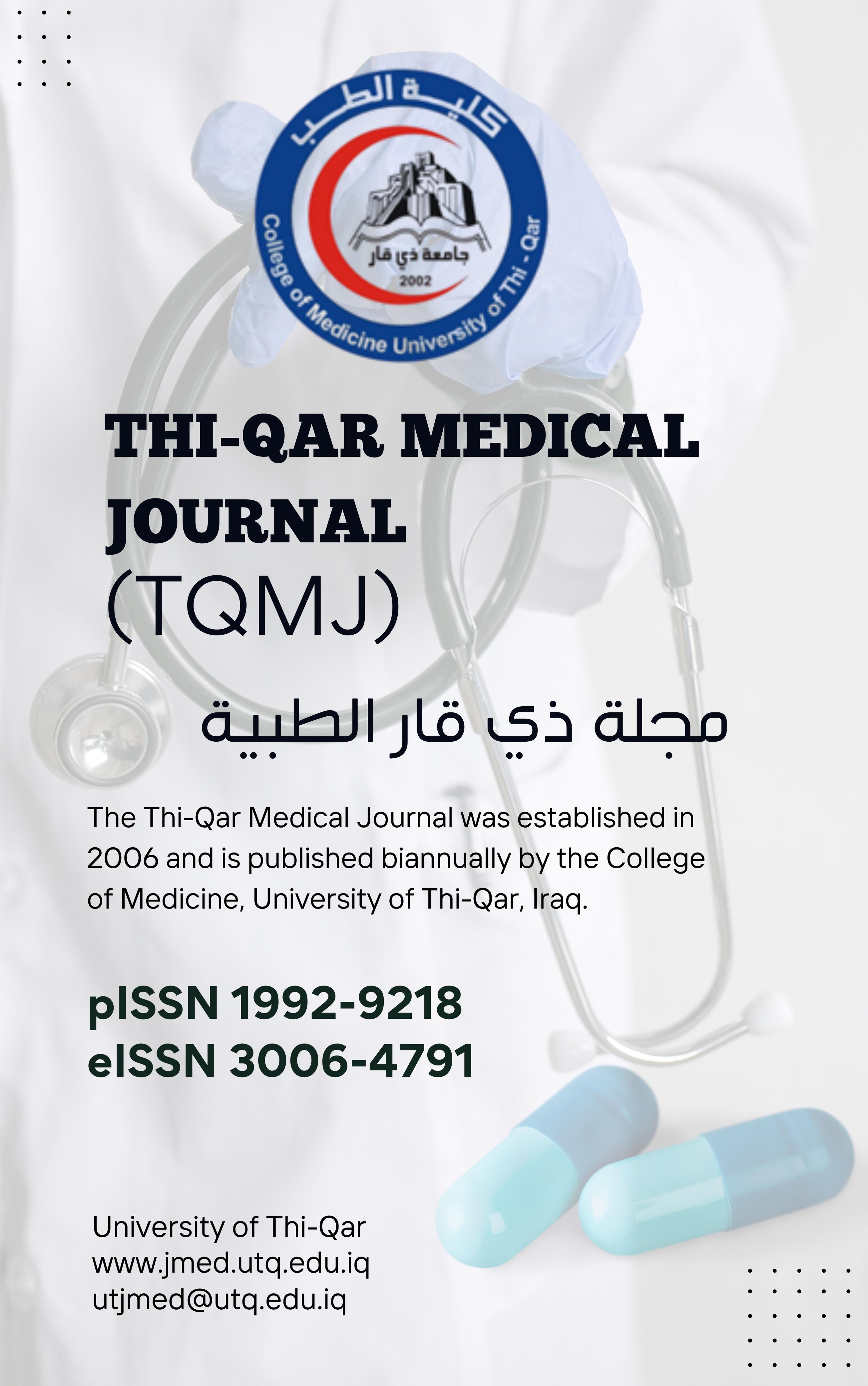Assessment of the Iraqi Health Staff Response to COVID-19 Outbreak: Basra an Example
DOI:
https://doi.org/10.32792/tmj.v27i1.513Keywords:
COVID-19, Epidemic, health-crises managementAbstract
Background: Assessment is a vital step in management, which aims at improving planning andimplementation of processes, activities, campaigns, and programs. This was the motive behind
conducting this study to evaluate the health system response in Basra Province, south of Iraq.
Method: This evaluative study included the selection of evaluation sites to obtain the relevant
background information about the resources involved, policy and legislation documents, and the
existing structure and process of COVID-19 crisis-management. The sample targeted included
medical and stakeholder non-medical staff.
Results: A gap was determined in following-up the principles of scientific handling of epidemics
including documentation, the absence of specialized staff in health-crises management was
documented, shortage in planning and preparing protocols and guidelines for epidemic
management was found.
References
Rural Health Information Hub. https://www.ruralhealthinfo.org/toolkits/ruraltoolkit/4/program-assessment. Accessed on 1/8/2021.
Samanlioglu F, Kaya BE. Evaluation of the COVID-19 Pandemic Intervention Strategies
with Hesitant F-AHP. J Healthc Eng. 2020;2020.
https://www.hindawi.com/journals/jhe/2020/8835258/. Accessed on 1/8/2021.
Abed A, Abdulwahid D, Jassim H. National Health Systems Response to COVID-19
Outbreak, Iraq an Example. Med J Basrah Univ. 2021;39(1):1–6.
Records, Department of Technical Affairs, Basra Directorate of Health, Iraqi Ministry of
Health
Lowy Institute, COVID-19 Performance Index, Deconstructing Pandemic Responses,
https://interactives.lowyinstitute.org/features/covid-performance/
Comprehensive Preparedness Planning. Danish Emergency Management Agency. 2009
Haas WH. Prinzipien und Aspekte der Seuchenalarmplanung am Beispiel der
Influenzapandemieplanung. Bundesgesundheitsblatt - Gesundheitsforsch –
Gesundheitsschutz. 2005;48(9):1020–7. doi: 10.1007/s00103-005-1120-8
Qasim N. The Director General Office Manager/ Basra Directorate of Health. [Personal
interview, 11 September] Basra Directorate of Health headquarter; 2020 (unpublished).
Fisher D, Teo YY, Nabarro D. Assessing national performance in response to COVID-19.
Lancet. 2020;396(10252):653–5.
Efstathiou P. Crisis Management in the Health Sector: Qualities and characteristics of health
crisis managers Crisis management in the Health Sector; Qualities and characteristics of Efstathiou
Panos, MD, MSc, PhD, Gogosis Kostas, MSc,. Int J Caring Sci. 2014;2(3):105–7.
Terwindt F, Rajan D, Soucat A. Priority-setting for national health policies, strategies and
plans. Strateg Natl Heal 21st century a Handb [Internet]. 2016;71. Available from:
http://www.who.int/healthsystems/publications/nhpsp-handbook-ch4/en/
Habeeb, OS. Lecture Notes in Basic Epidemiology and Health Care. 1st edn. Basrah:
University of Basrah; 2005. Section 3, Chapter 3, Health Care Administration; pp. 91-5
Kumar A, Kasloff SB, Leung A, Cutts T, Strong JE, Hills K, et al. Decontamination of N95
masks for re-use employing 7 widely available sterilization methods. PLoS One [Internet].
;15(12 December):1–16. Available from: http://dx.doi.org/10.1371/journal.pone.024396
Downloads
Published
Issue
Section
License
Copyright (c) 2024 University of Thi-Qar Journal Of Medicine

This work is licensed under a Creative Commons Attribution-NonCommercial-NoDerivatives 4.0 International License.




